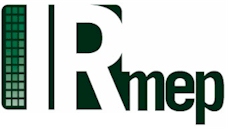Israel “free” trade agreement delivers $144 billion
deficit to US
America’s first and worst bilateral
|
|
|
Inflation-Adjusted |
||
|
$ US Billion |
FTA |
$ US Billion |
|
|
FTA Country or Bloc |
Surplus or (Deficit) |
Effective Year |
Surplus or (Deficit) |
|
NAFTA |
$(73.23) |
1994 |
$(2,165.50) |
|
Israel |
$(10.89) |
1985 |
$(143.74) |
|
S. Korea |
$(28.33) |
2012 |
$(92.07) |
|
Colombia |
$2.45 |
2012 |
$(7.64) |
|
Jordan |
$(0.13) |
2010 |
$2.65 |
|
Oman |
$1.46 |
2009 |
$3.23 |
|
Bahrain |
$0.37 |
2006 |
$3.32 |
|
CAFTA |
$5.13 |
2009 |
$9.46 |
|
Morocco |
$0.60 |
2006 |
$10.97 |
|
Peru |
$5.07 |
2009 |
$20.53 |
|
Chile |
$6.71 |
2004 |
$42.44 |
|
Panama |
$7.43 |
2011 |
$72.07 |
|
Singapore |
$10.42 |
2009 |
$80.85 |
|
Australia |
$14.18 |
2005 |
$161.85 |
News reports occasionally provide a glimpse of the
truth—that the U.S.-Israel FTA is merely an extension of
Israel-lobby extracted American aid—a $10 billion boost to
the annual $3-$4 billion US foreign aid package whereby
Israel receives the lion’s share of the
US foreign aid budget. When Israel reinstated a 120
percent duty on imported
gefilte fish, it took the involvement of an
Illinois congressional representative, the secretary of
state, Israel’s ambassador and the Israeli Prime Minister to
get a special “one
time” exemption and finally allow the US fish to enter
Israel. Meanwhile, Israel’s own voluminous goods arrive in
American ports on greased skids even as Israel’s agents
fight to gain acceptance of illegal settlement products
within
Israel's flow of exports.
Grant F. Smith is the author of the new book Big
Israel: How Israel’s Lobby Moves America.
He is director of the Institute
for Research: Middle Eastern Policy in Washington (IRmep)
The Institute for Research Middle Eastern Policy (IRmep) is a Washington-based nonprofit organization that studies US-Middle East policy formulation.

